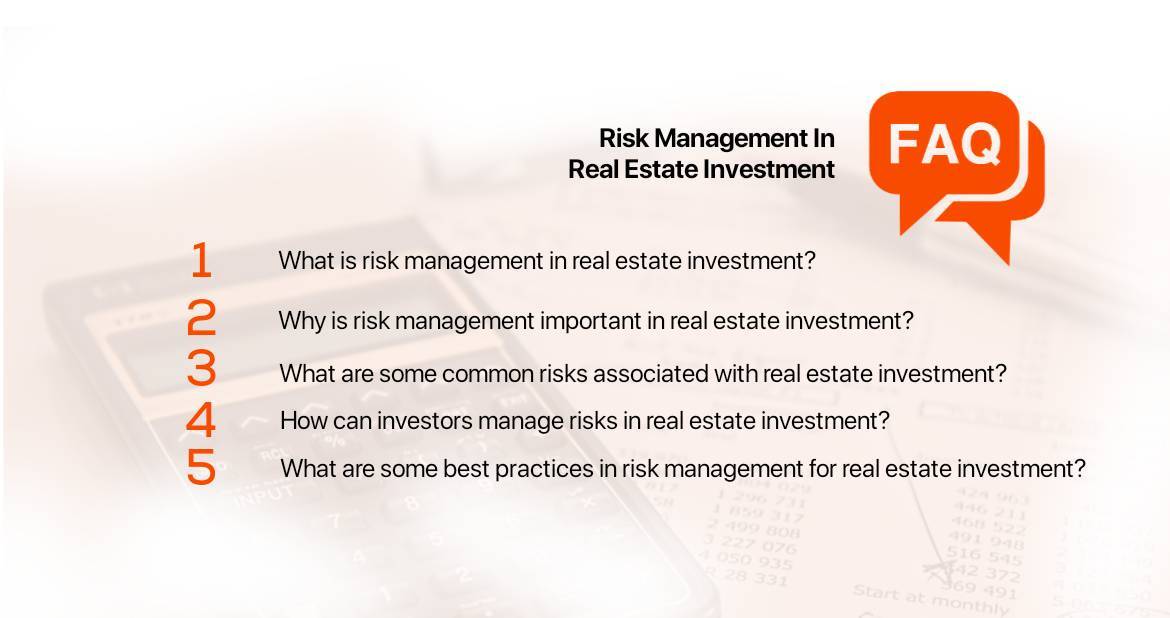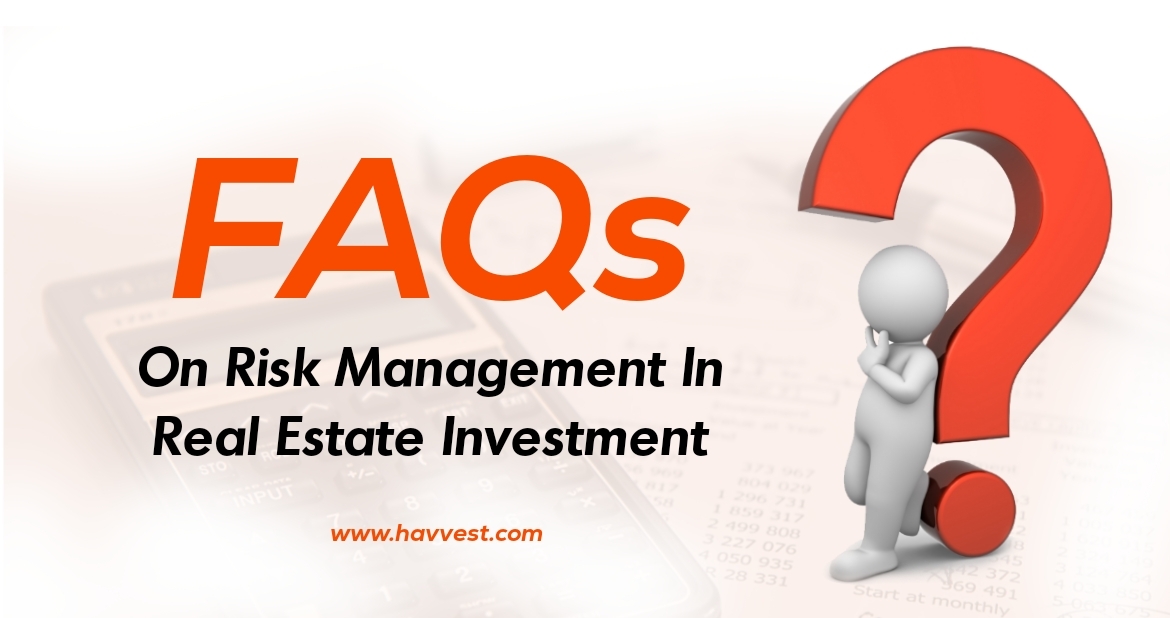Real estate investment is a very lucrative venture that has become increasingly popular over the years. With so many factors to consider, it’s important to have a solid understanding of risk management in real estate investment. Join us as we explore some common questions related to risk management in real estate investment and their answers. Let’s dive right in!

1. What is risk management in real estate investment?
Risk management in real estate investment refers to the process of identifying, assessing, and mitigating risks associated with real estate investments. It involves evaluating potential risks such as market risk, credit risk, liquidity risk, and operational risk, and implementing strategies to minimise their impact on investment performance.
2. Why is risk management important in real estate investment?
Risk management is important in real estate investment because it helps investors to protect their investments and maximise returns. When potential risks are Identified and mitigated, there’s a high likelihood that your losses window is reduced and there’s an increase in the potential for profitable returns.
3. What are some common risks associated with real estate investment?
Some common risks associated with real estate investment include:
- market risk (such as fluctuations in real estate prices and interest rates)
- credit risk (such as default on loans or leases)
- liquidity risk (such as inability to sell or lease a property)
- operational risk (such as unexpected maintenance or repair costs)
It is also absolutely essential to understand that investing as an individual varies from investing with a company like Havvest in terms of risk.
When you invest with Havvest, you don’t have to worry about the risks since we handle it for you, enabling you to focus on other aspects of your life– could be your job or other investments.
4. How can investors manage risks in real estate investment?
Investors manage risks in real estate investment by diversifying their portfolios, conducting thorough due diligence on potential investments, implementing risk management strategies such as hedging and insurance, and working with experienced professionals such as real estate agents, attorneys, and financial advisors.
At Havvest, we provide personalised investment strategies and risk management solutions to help investors achieve their financial goals. So be sure to check back frequently for juicy updates on our blog if you need to stay up to date on everything related to investments and savings.Â
5. What are some best practices in risk management for real estate investment?
Some best practices in risk management for real estate investment include conducting regular risk assessments, maintaining adequate cash reserves, staying up-to-date on market trends and conditions, investing in diversified portfolios, and having contingency plans in place for potential risks or emergencies. This potentially helps to minimise loss, increase profitability, enhance decision-making, improve brand reputation and ultimately increase company resilience.
Effective risk management is critical to success in real estate investment, and working with an experienced partner like Havvest can help investors navigate the complexities of the market and achieve their financial objectives.
In all, Havvest specialises in creating custom portfolios tailored to individual investor needs, offers a range of investment and savings options to help mitigate risks and maximise returns and provides expert consultation on the best industry practices. So, join us today to enjoy our mouth watering offers.




